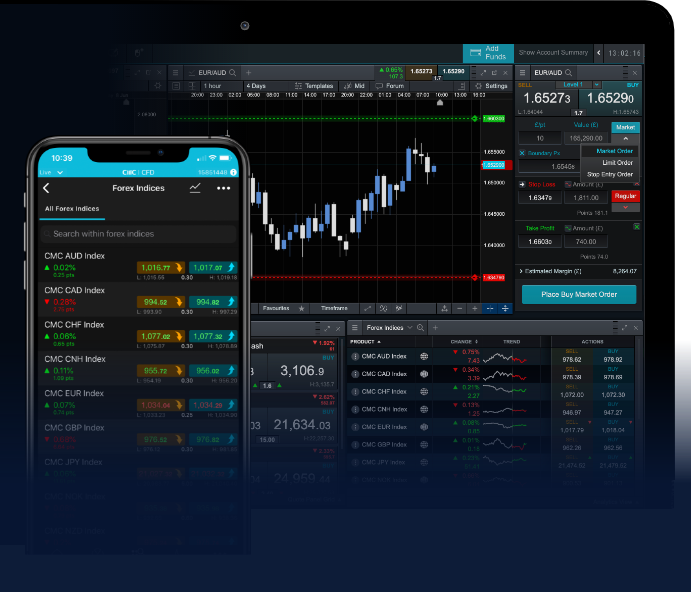
The Essentials of Forex Trading: Strategies, Risks, and Opportunities
Forex trading is a dynamic and lucrative market that attracts millions of traders worldwide. With a daily trading volume exceeding $6 trillion, it offers various opportunities for individuals and institutions alike. Whether you’re a seasoned trader or a beginner, understanding the essentials of Forex trading is crucial for success. In this article, we will delve into the various aspects of Forex trading, from strategies and risk management to the significance of choosing the right forex and trading Forex Brokers in Cambodia for your trading journey.
What is Forex Trading?
Forex, or foreign exchange, is the marketplace for buying and selling currencies. It operates on a decentralized basis, meaning there is no central exchange—it functions through a network of computers around the world. Forex trading involves exchanging one currency for another, with the aim of making a profit based on fluctuating exchange rates. Currencies are traded in pairs, with the most common pairs being EUR/USD, GBP/USD, and USD/JPY.
The Importance of Understanding Currency Pairs
Understanding currency pairs is fundamental to Forex trading. Each currency pair consists of a base currency and a quote currency. The base currency is the first listed currency in the pair, and the quote currency shows how much of the quote currency is needed to purchase one unit of the base currency. Traders must comprehensively analyze market trends, economic indicators, and geopolitical events to predict movements and make informed trading decisions.
Forex Trading Strategies
Developing a sound trading strategy is paramount for Forex success. Here are some popular strategies employed by traders:
1. Scalping
Scalping is a short-term trading strategy that involves making small profits from numerous trades throughout the day. Traders who use this strategy often look for quick price movements and enter and exit positions within seconds or minutes.
2. Day Trading
Day trading involves opening and closing positions within the same trading day. This strategy minimizes the risk of holding onto positions overnight, where unexpected market moves can occur due to economic reports or news events.
3. Swing Trading

Swing trading aims to capture price swings in the market over a period ranging from a few days to several weeks. Swing traders typically utilize technical analysis to identify entry and exit points based on price patterns and trends.
4. Position Trading
This long-term trading strategy is focused on fundamental analysis rather than day-to-day price fluctuations. Position traders will hold onto their investments for weeks, months, or even years, depending on the currency’s overall trend.
Risk Management in Forex Trading
Managing risks is an integral part of Forex trading. Each trader must assess their risk tolerance and implement strategies to protect their capital. Here are some effective risk management techniques:
- Setting Stop-Loss Orders: Using stop-loss orders can prevent massive losses by automatically closing a position when it reaches a specified price level.
- Diversification: Avoid putting all your capital into one trade or currency pair. Diversifying your portfolio can mitigate risks.
- Proper Position Sizing: Determining how much of your capital to invest in each trade is crucial. This approach helps in managing risk effectively.
- Regular Review and Analysis: Regularly reviewing your trades and outcomes can provide insights into what is working and what isn’t.
Choosing a Forex Broker
Selecting the right Forex broker is critical for a successful trading experience. Here are factors to consider when choosing a broker:
- Regulation: Ensure the broker is regulated by reputable authorities, which can offer protection against fraud and malpractice.
- Trading Platform: The trading platform should be user-friendly, robust, and equipped with essential tools and features for effective trading.
- Spreads and Commissions: Understand the costs involved in trading, including spreads and commissions, as they can significantly impact profitability.
- Customer Support: Quality customer support can make a significant difference in resolving issues quickly and efficiently.
The Future of Forex Trading
The Forex market is continuously evolving, driven by technological advancements and changing market dynamics. With the expansion of electronic trading platforms, access to Forex trading is now available to a broader audience. Furthermore, the integration of AI and machine learning is transforming trading strategies, offering more sophisticated tools for market analysis and decision-making.
Conclusion
Forex trading can be an exciting and rewarding endeavor if approached with the right knowledge and tools. Understanding the various currency pairs, developing effective strategies, and managing risks are vital for success. As you embark on your Forex trading journey, remember to choose a trustworthy broker and continually educate yourself. The world of Forex is vast, but with determination and patience, you can thrive in this dynamic market.
